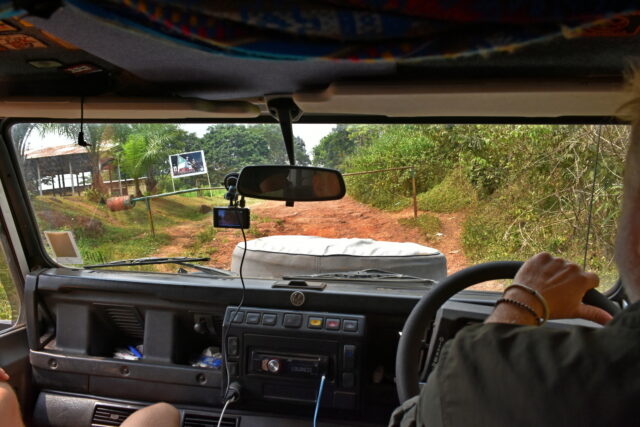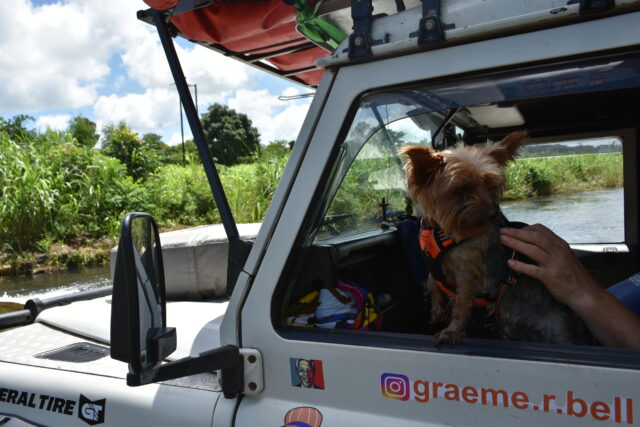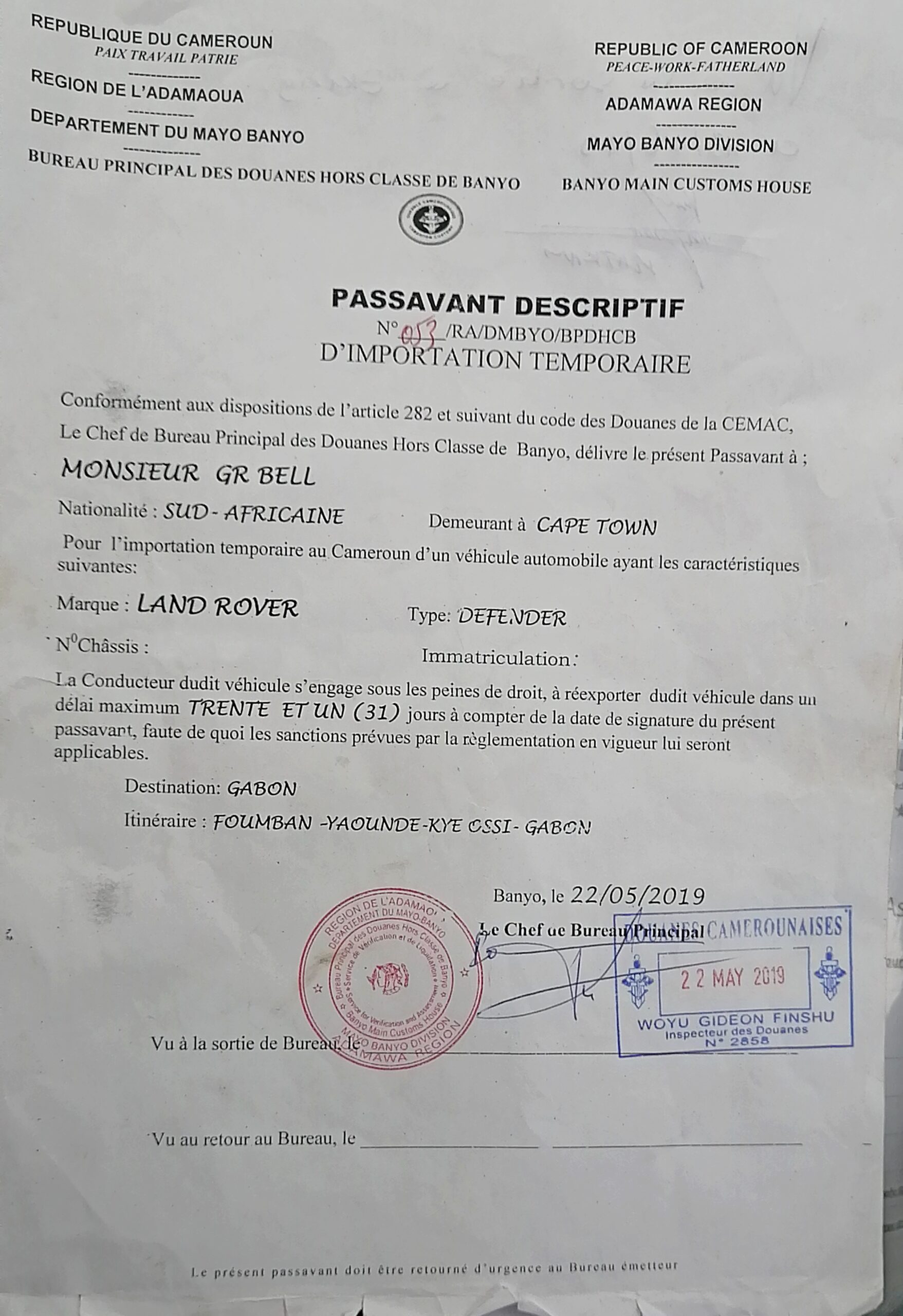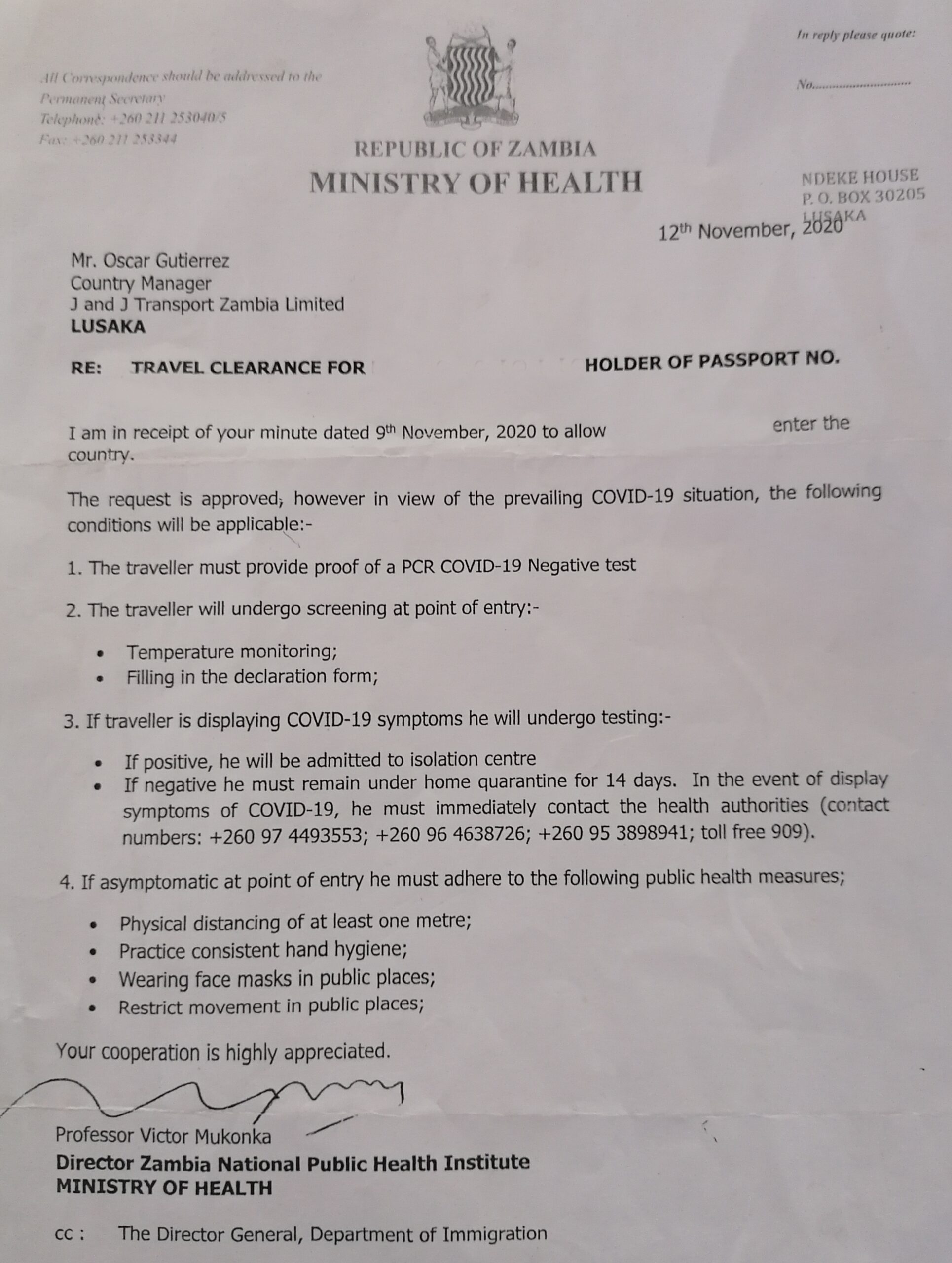When planning a holiday or an overland journey that crosses one or several borders, one often experiences a pang of fear. There is the fear of whether you will be permitted to enter a country, if you have the correct documentation, or if recent policy changes have been implemented that you may not be aware of. I can assure you that these problems happen more times than most people would like to admit. And during these difficult times of Covid-19, if your originating country is placed on the red alert list, upon arrival at your destination, you’ll likely find yourself promptly placed on the next plane home.
Even after crossing over 150 borders during the past 10 years, I still suffer from a slight flutter of apprehension before tackling the bureaucracy of a foreign country head-on. These last few years have been the most challenging.
While heading from South Africa to Vladivostok, Russia, in 2020, a civil war erupted in Ethiopia, which continues to rage. The country sat firmly in our path to Russia. We didn’t want to spend more precious time and our limited resources travelling around South Africa (which we had done extensively, and where we are from). And as we had exhausted our annual visas in Southern Africa, we reconsidered our options, deciding to travel to the United States.

Unfortunately, South Africa was and still is a Covid-19 red alert country, which meant that we couldn’t enter the States if we had travelled or transited through the country in the 14 days prior to arriving in the USA. In addition, the Mexico/USA land borders were still closed to foreigners at that time. After some research and many sleepless nights, we decided to fly to Mexico and self-quarantine for14 days, and then fly from there to the USA. This work-around succeeded for us, and if you’re looking to fly internationally under similar circumstances, the solution is the same: self-quarantine for 14 days and fly from any other country not on a red alert list. This is a somewhat complicated solution to a unique problem, but there are many different ways to ensure smooth border crossings if you follow these general guidelines:
- Be stern and stand your ground, but put on that sweet-as-pie smile. Remember, border personnel have the power to decide whether you can enter their country or not.

- If it takes border personnel an hour to complete an application form by hand, or even online, grin and bear it. Offer them some refreshments and perhaps even reach around the desk, with their permission, and give them a guiding hand. Sometimes your passport looks as foreign to them as you do.
- Gain advice and reach out to other travellers that have recently entered the country. They are far more experienced than the armchair travellers out there.
- Research, research, and more research. I can’t tell you how many hours I have spent reading up on how to get into different countries legally. I then have all of my research on hand at the border, and when challenged, I can refer them to a section of their immigration law they might not even know existed.
- Keep yourself up-to-date on the current political situation in a country. Civil wars erupt quickly, especially in some volatile African states. This could mean waiting a month at the border or having to undertake a massive detour, costing you additional time and money.

- Never overstay your visa, and always leave a few days before your visa expires. If you cannot gain entry to your destination country for some reason, you want to ensure that you will be able to return and not be subject to the laws of no-man’s land.
- Subscribe to the relevant newsletter or government agency alerts for your destination country/countries. Gov.uk has up-to-date information with daily alerts and the option to sign up for specific Google alerts.
- If travelling with a pet, check the importation rules. Some airlines have just recently allowed pets to travel in cargo, while others have enacted additional requirements. For example, if you are unaware of the CDC’s pet ban from 104 high-risk rabies countries from entering the USA, you may be left in tears with Fido being rejected entry into the country or even boarding a plane.

- If travelling with a drone, make sure you are aware of any prohibitions or laws your destination country may have. A few months spent in prison for flying your drone illegally is definitely not the perfect getaway.
Specific Guidelines for Travel During the Pandemic
- Check with your local consulate for your destination country to ensure you will be permitted to enter, and if there are any specific PCR or antigen tests required. Make note of the timeline for each PCR/antigen test. Some airlines will not permit you to board if your PCR/antigen test has lapsed by even a few hours.
- Some airports or land borders are easier to cross than others. As a South African passport holder, we seem to have an increased chance of being denied entry, compared to, for instance, an EU passport holder. So we always make sure to enter a foreign country at a quiet border crossing where officers will be far more relaxed. In most cases, a late flight or late entry has officials waving you through quickly so that they can clock off early.
- If possible, get vaccinated. There are very few countries across the globe that will allow unvaccinated tourists to enter their country without restrictions, if at all.



- Ensure your visas are valid and remain valid during your stay. With massive backlogs being experienced by most consulates, the chances of quickly applying for another visa or a renewal is unlikely.
- The same applies to travelling with your children. Birth certificates and Covid-19 tests are among the additional documentation required to travel with.
Remember, she (or he) who has the most paperwork wins.
Our No Compromise Clause: We carefully screen all contributors to make sure they are independent and impartial. We never have and never will accept advertorial, and we do not allow advertising to influence our product or destination reviews.


